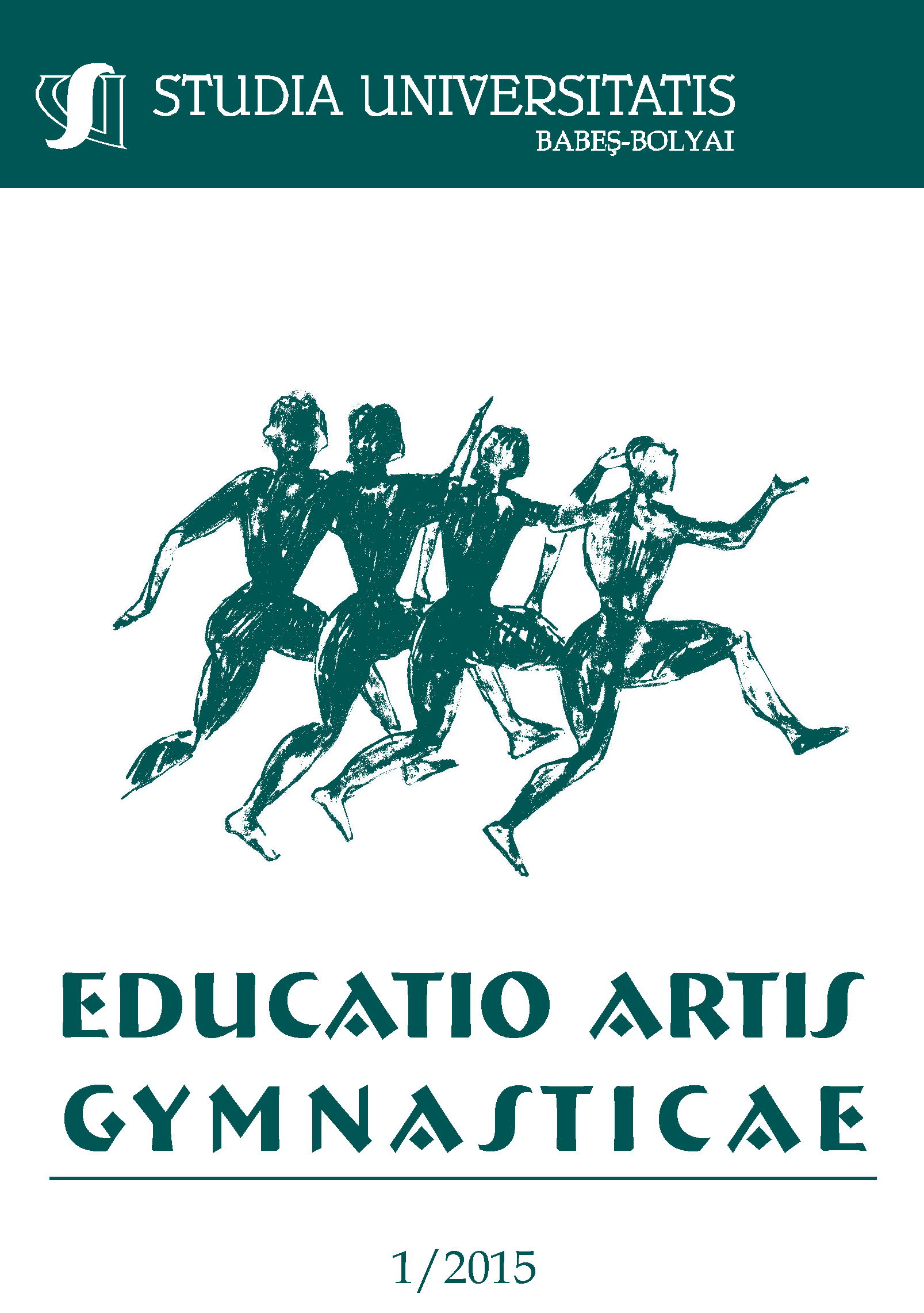THE PARENTAL INFLUENCE ON JUNIOR TENNIS PLAYERS
Keywords:
player-coach-parent relationship, parental role, junior, tennis, behaviour, strategy.Abstract
This study has been made in order to better understand de role played by parents in obtaining tennis success by their children. In order to identify both positive and negative parental behaviours and strategies for maximising junior success by an efficient player-coach-parent triad. For reaching these goals a number of 14 junior tennis coaches in Cluj-Napoca answered a questionnaire. Results show that coaches think that parental involvement is crucial for success in junior tennis. Some principles related to the parental behaviour were identified as follows: the high expectations of parents because of the important financial investment, the opinion that tennis can produce a special parent-child relationship if correctly approached and the efficiency of parenting that enfacises virtues like fair-play or hard work, and not victory as the supreme goal. The coaches’ answers enfacised the coaches’ opinion that parents underscore victory and often have irrealistic expectations. On the other side, positive parental behaviour was related to the financial, logistic, social, emotional support and also to the sacrifices made by parents for providing opportunities for their children in order that they achieve success.
Influența părinților asupra jucătorului de tenis junior. Acest studiu a fost efectuat pentru a înțelege mai bine rolul pe care părinții îl joacă în obținerea succesului în tenis. A fost alcătuit un eșantion format din antrenori de tenis de pe raza municipiului Cluj-Napoca pentru a identifica acele comportamente ale părinților care sunt eficiente și a celor care sunt ineficiente, precum și strategii pentru maximizarea succesului printr-un parteneriat între jucător, antrenor și părinte. Pentru îndeplinirea acestor obiective, s-a aplicat un chestionar unui număr de 14 antrenori de tenis ai jucătorilor juniori din Cluj-Napoca. Rezultatele relevă faptul că antrenorii au calificat implicarea parentală ca fiind crucială pentru succesul în tenis. Au fost identificate și unele principii referitoare la comportamentul părinților precum așteptările ridicate ale părinților, dată fiind investiția financiară importantă, eficiența parentingului care nu pune accent pe victorie ci pe virtuți precum fair-playul și munca asiduă sau opinia că tenisul, abordat corect, poate produce o relație părinte-copil specială. Răspunsurile la chestionar au evidențiat părerea antrenorilor că părinții subliniază prea mult importanța victoriei și deseori au așteptări irealiste. Pe de altă parte, comportamentele parentale pozitive s-au axat pe sprijinul oferit (financiar, logistic, social și emoțional) și sacrificiile făcute pentru furnizarea de oportunități pentru copiii lor astfel încât aceștia să poată să aibă succes.
Cuvinte cheie: relație jucător-antrenor-părinte, rol parental, junior, tenis, comportament, strategie.
References
Bauer, I., Gould, D. & Martens, R. (2001). USOC developing young champions summit report. USOC Sport Science and Technology Report. Colorado Springs, Colorado.
Brustad, R., Babkes, M. & Smith, A. (2001). Youth in sport: Psychological considerations. Handbook of Sport Psychology, 604-635.
Côté, J. & Hay, J. (2002). Family influences on youth sport performance and participation. Boston: MA: Allyn & Bacon.
Gould, D., Eklund, R., Petlichkoff, L., Peterson, K. & Bump, L. (1991). Psychological predictors of state anxiety and performance in age-group wrestlers. Pediatric Exercise Science, 3, 198-208.
Gould, D., Larry, L., Rolo, C., Jannes, C. & Pennisi, N.S. (2005, January 14). www.educ.msu.edu. Retrieved February 19, 2014, from Mischigan State University: http://www.educ.msu.edu/ysi/articles/ParentsRoleinTennisReport.pdf
Gould, D., Wilson, C., Tuffey, S. & Lochbaum, M. (1993). Stress and the young athlete: The child’s perspective. Pediatric Exercise Science, 5, 286-297.
Scanlan, T. & Lewthwaite, R. (1984). Social psychological aspects of competition for male youth sport participants: I. Predictors of competitive stress. Journal of Sport Psychology, 6, 208-226.
Downloads
Published
How to Cite
Issue
Section
License
Copyright (c) 2015 Studia Universitatis Babeș-Bolyai Educatio Artis Gymnasticae

This work is licensed under a Creative Commons Attribution-NonCommercial-NoDerivatives 4.0 International License.



